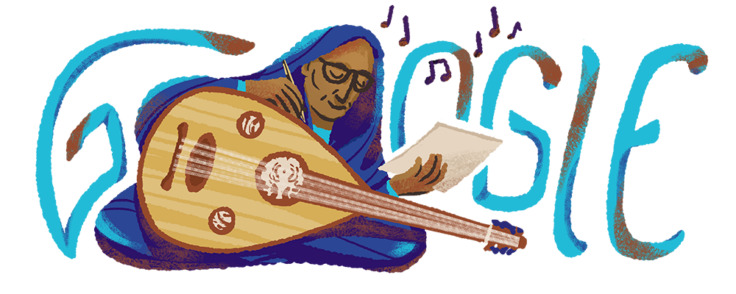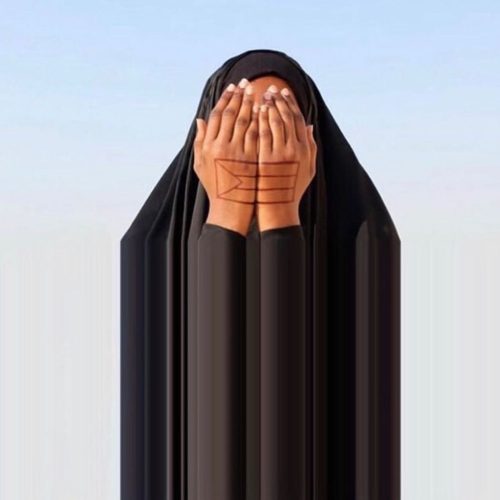Google’s famed tributary series, eponymously named Google Doodle, is back to spotlighting some of the Arab World’s most revered icons by celebrating the life and accomplishments of late Sudanese composer and oud player Asma Hamza through a carefully-drawn widget, which is temporarily available on the search engine’s main portal.
Coinciding with the day the instrumentalist found herself part of the winning cohort of the Laylat AlQadr AlKubra music competition in Sudan in 1997, which is believed to have been a “turning point in her career and helped her gain recognition in a male-dominated field,” Hamza’s decade-spanning career has been defined by an unwavering commitment to music despite facing societal challenges andgender biases on top of pervasive systemic barriers all along the way.
Born in an ultra-conservative Sudan in 1932, Hamza’s instinctive interest for rhythms and melodies trails back to her early childhood when she aspired to become a singer before having to come to terms with the fact that her vocal cords were not safely equipped for her to pursue a singing career..
With more than one trick under her sleeve, she decided to turn her weakness to a well-trained strength by whispering instead of chanting, accompanying her voice with the oud her father gifted her upon noticing her vocal talent.
Always supportive and acclamatory of his daughter, although previous times in the African State called for women to not even consider making a living outside the house, the young Hamza, with her father’s support, pushed against the societal norms and expectations that confined women to eventually grow into one of the most respected artists to have sprouted out of Sudan, as well as the African and Arab World.
Hamza notably became one of the first female composers in Sudan by partitioning music for several prominent Arab icons of the 20th century before going on to become the first formally trained Sudanese woman oud player in 1946, and slowly engraving her name in the country’s sonic scene as a result of her pioneering career, feminist path through life and the creative industries, as well as her astounding longevity throughout the years.
According to Google, Hamza would have reached one of her many peaks on this day, 26-years-ago, as she was announced as ”one of the winners of the Laylat AlQadr AlKubra song competition held in Sudan,” commending her as one to highlight as she stood alongside many renowned male musicians.
The illustration is only visible around the region today, in countries including Morocco, Algeria, Libya, Egypt, Jordan, Saudi Arabia, Iraq, Oman as well as the UAE.









